#adventures in autoimmune disorders
Explore tagged Tumblr posts
Text
riding a Fine Fucking Line with my shitty body lately bc humidity makes me nauseous and makes my skin break out no matter what I do vs having it be Too Dry gives me nosebleeds and makes me more susceptible to sinus/respiratory infections
so yes I have a Personal dehumidifier AND humidifier that I use back and forth depending on the ambient humidity
2 notes
·
View notes
Note
Ahhh im sorry i tried to shorten it but it had to be several asks to get all the info across. hi! i havent been diagnosed with any physical disability (MIGHT have an autoimmune disorder, am neurodivergent) so i wanted to get a second opinion on this? Im sorry its rambly im not the best at being succinct. Or if this isnt something you can help with. basically im worried about leaning into tropes/stereotypes about wheelchair users being helpless or. Like, damsels in distress. (1/?)
or ~needing abled characters to save them~. its a scifi fantasy secondary world and the wheelchair user in question, P, starts using it about midway through his story because of hemiplegia as a side effect of magic use. im worried about his best friend, E. E is SUPER protective of P, but he generally defers to P on actual decisions. Hes a dogboy so excuse the pun but hes basically P’s guard dog. P DOESNT boss him around (aside from. Like. “hey back off that person doesnt mean any harm”) 2/? but E would literally do anything for him. P can handle himself, E is just. A selfappointed bodyguard of sorts.what im worried about is E being so protective being read less as him not wanting his best friend hurt and more as like. Savior type knight in shining armor deal. Especially in regards to right after the magic mishap because E is the only one around and ends up bringing P to the hospital and since they were in a secluded area if he hadnt been around theres a very real possibility (3/?) --P wouldnt have been able to get help. Im hoping it wont be a problem since E is like this before and after (and doesnt change his attitude / get More protective after aside from being like hey. Please stop trying to scry oh my god.) P gets his wheelchair, plus P is still VERY involved in the adventure, but im still a little wary. thoughts? & thank you for your time! im SO sorry this got so long i tried to make it shorter <//3
Hi! I get your concern, but I think that showing this characterization before P develops hemiplegia helps to make it clear that this is just how E is more than a reaction to P's disability. I am also happy to hear that you are writing a character with hemiplegia!
Thank you and happy writing!
-Mod Bert
34 notes
·
View notes
Text

This week's #zine #review is of "Adventures in Vampirism" by Audrey J. Ross @dragoncultcreations!
I have an autoimmune disorder. When it first developed, my body rejected all human food. I became fatigued, skeletal. Undead.
This zine explores chronic illness through the lens of vampirism. I like this kind of metaphor, applying something fantastical to the mundane. Reading it made me feel pretty cool.
#spoonie #spooniezine #disability #disabilityzine #zinereview
12 notes
·
View notes
Text

JOMP Challenge | November 15 | disabled character
English: Lotta and the Crumbs: A Gluten-Free Adventure
This is a beautiful children's book about the autoimmune disorder coeliac disease, my colleague bought it for my library and I actually cried reading it, seeing the representation for the first time in a children's book
#justonemorepage#jompbpc#booklr#books#children's books#my post#coeliac disease#autoimmune disorder#disability
13 notes
·
View notes
Text
Thinking about what Chiaki's illness actually is... I think its the aetheric equivalent of an autoimmune disorder? Their body has a hard time integrating foreign aether. Treatment from the conjurers, getting and strengthening the Blessing of Light, and learning more about both aetherology themself have helped significantly- probably the Blessing of Light most of all, to be honest. Maybe the appearance of that is the reason they were allowed to set out as an adventurer at all, to be honest? idk
2 notes
·
View notes
Text
I have GOT to add on to this cause I am sick of people dunking on disabled/chronic pain headcanons for shadow.
1. The title of "Ultimate Lifeform" doesn't mean anything, it was a label that was put on him by an overzealous creator who had a lot of bias over his own creation. Its a title that often brings Shadow stress and pressure and he's quicker to perceive Sonic as the true ultimate lifeform rather than himself when he's being honest. Saying he can't be disabled or have chronic pain because he's "the ultimate lifeform" doesn't really mean anything.
2. In Gerald's diary, which was given as a booklet alongside sonic x shadow generation pre-orders (which I own), it's mentioned that Maria designed Shadow's jet boots to help him get around. To me, this implied that he had to have been struggling in getting around for Maria to feel the need to give him some form of aid, perhaps even a mobility aid. She would be the only person on the ARK who would notice and understand someone else's struggle with their own body.
3. Even if he doesn't need the jet boots, HE NEEDS his inhibitor rings. It's not stated very clearly but it's implied that he would suffer in some form or fashion if he lost them- that his own power would overwhelm his body and damage it. As someone with an autoimmune disorder where my own body overproduces white blood cells and overworks itself and ends up damaging my own body by overwhelming it, that makes me feel like Shadow's inhibitor rings are a lot like immuno suppressants, a medicine that people with immune system related diseases use to suppress or inhibit their own immune system and prevent it from damaging themselves. If shadow needs his inhibitor rings to stop his body from damaging itself, then that's a disability where he's utilizing an aid to live, or live on the same level as his peers.
4. In sonic x shadow generations, shadow says that his doom powers are from his alien DNA and are a part of his body. However, when he uses them, he appears to be in visceral pain. He screams out and grips at his face and body and keels over in pain. If those powers are from his own DNA and body, and are hurting him, and is something that can reoccur, then it counts as chronic pain or a chronic condition!! It shouldn't hurt to use your own body, but it does for him.
5. Shadow is a PROTOTYPE. He is only the second prototype, and the new manga confirms that he was a FAILED prototype. He was made to cure maria but in the manga it was confirmed that it failed and he never could have cured NIDs. The first prototype, the biolizard, literally needed massive, invasive life support machinery to live at all. Think about how imperfect the prototype right after that one might be. The Robotnik family seems quick to claim that rushed or unfinished projects are "perfect and ready to go," that's kind of how all of eggman's plans fail (as we've learned from Starline in the IDW comics) so I feel like Gerald may also be claiming that his creation, Shadow, is perfect, even when he isn't even able to solve the problem he was made for.
6. Shadow seems to fall out of his super form faster than Sonic and faint when pushing himself to remain in the form (he faints a lot in general, compared to other characters (some examples being Sonic Adventure 2, Sonic Prime, and Sonic Battle which turned into a multi-day coma under Rouge's care). He also seems to generally avoid going super compared to Sonic. I'm not sure how natural going super is but it seems almost easy for Sonic and Silver. Even when Sonic runs out of time in his super form, he never faints from it (which is made evident from the sonic advance games where his super form runs out while rescuing Vanilla from falling, but he's still fine and smiling & continues to carry someone larger than him with no struggle right after losing his super form).
7. I would honestly also count memory loss as a potential disability or chronic condition for him. He usually recovers his memory but it is genuinely a reoccurring problem in canon for him to lose memories or have his mind temporarily wiped/controlled/brainwashed.
8. PTSD can be considered a disability if it is detrimental enough to someone's day to day life. In America it can be legally considered as a disability and people suffering can be given aid under certain terms. In the comics, games, and official animations, Shadow's flashbacks of Maria's scenes are extremely consistent, invasive, uncontrollable, and sometimes detrimental to him. Uncontrollable and repetitive flashbacks of the traumatic scene accompanied by panic attacks are symptoms of PTSD, and I don't think it's subtle that the writers are really trying to convey this trait for Shadow.
Being disabled doesn't necessarily mean being super weak. He uses aids and tools to do what he does but he still does it well. It's not "inaccurate to canon" for disabled & chronically ill people to relate to him and it shouldn't be insulting to say his chaos energy & black arms DNA is similar to disabilities and chronic illnesses.


#shadow the hedgehog#maria robotnik#ark siblings#the ark siblings#sonic the hedgehog#sonic headcanons#shadow#sth
8K notes
·
View notes
Text
Welcome Collection and Jasonon adventure




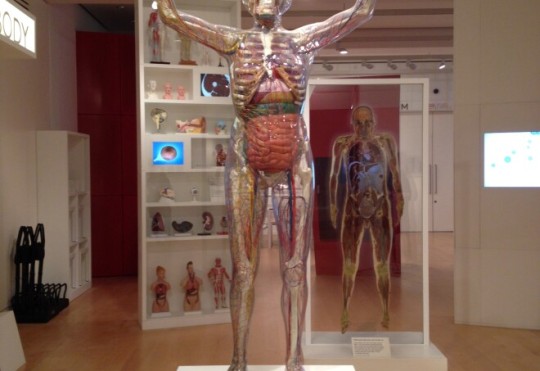
I went to visit the Welcome Collection and in Euston station. Euston station the welcome collections just only five minute away needed and walk just very very local gallery in the Euston station.I had seen Jason's adventure I also had chance to see the anatomy on the work on collection is just front of the Jason collection. It’s like a pretty unique. It’s because the artist Jason had been mentioned about his main conceptions and inspiration is from the anatomic from the collection and the main inspiration for his work as he self. Also all his work has some little conceptions is like a little journey of his life. I remember when I was done a little journal about in my foundation year it’s a pretty similar. It’s like sharing a little journal. He’s also sharing his little journey and little adventures and journals just in a different way it’s not with a sketchbook is much more what he experienced is a periodic he was experienced His life.
“An emotional and whimsical expression of the joys of being human, fun for the whole family, and has something powerful to say about how society perceives disability.
Metro
Autoimmune disorder he has been battling since he was a teenager. His journey portfolio talks about how his family took part in every single bit of his family and friends. It was difficult for me to understand autoimmunity precisely when I was researching. Still, I know it highlighted for myself that the regular role of the immune system in defence against infections is disturbed, resulting in it mistakenly attacking normal healthy cells in the body. Examples of such diseases include rheumatoid arthritis, type 1 diabetes and multiple sclerosis, and there are more than 80 types of autoimmune diseases known. Describe the boat he is community attacked by the white cells. It’s pretty complicated for me to understand it because, at the time, it’s so big bones and skins got it could see about had so many challenges and for me to understand it, and that’s why I thought like maybe outside of the Oxford dictionary and the NHS descriptions because the NHS is a bit more describing what is precisely about the unit, but from the artist we are talking about from this blog about how he sees it so I also shared the little imagination so like I mentioned about his family about like with his diorama at work. So, the artwork is presented more like pink and yellow soldiers. He was about how he looked like an outside-the-box influencer, and he chose and wanted to influence so many people with a similar condition that Jason was battling. He wanted to be that to be the bright side. Jason influences everybody fighting with disabilities and wants to be influenced by many people. Still, Jason’s exhibitions about the anatomists you enjoyed are on the same floor. It’s just like in front of each other, so it could be shown that the welcome collection at the time opened at the artist. How much did they influence exhibited areas? It’s great to see that when I was going to visit the welcome collection, I also got welcomed, and I also got supported by so anyway so and so many people got their support. I couldn’t say how much I liked the work collection. One of my top 10 galleries is a modern or British gallery.
In this exhibition I was not understanding the artist perspective or the colours could symbolise something or hidden codes like in the art psychology.
I am very, very influence welcome collection so special and clinical figures. There is a couple of expeditions around on the collection. I don’t really got a chance to go. There is my time. It’s not really worked out well yet so whenever I got a chance I will be busy again and I will be doing more sketching, especially when I could object environment I will be sharing also my post about like will be a sketched on the welcome collection so I will be edited this one soon I will sketched the sculpture pieces of the anatomic that’s one of my favourites thing and the odds the anatomic sculptures of the bodies I could understand totally what was visually a bodies works and an illustration how does it work ?
There were a couple of pictures of doctors. I had been sketched and sketched rooms, but so much mess all around the person's room. It’s all Tracy Emmon. It reminded me of Tracy presenting someone terrible; unfortunately, I don’t usually have time to read every piece. What is it about? Everything is about, but it’s interesting to know as I wanted to become an illustrator. I wanted to make my own story out of it with the expressions, or are they saying that’s why I usually go to The public areas and sketch on the Underground station? I always believed that people's eyes were telling me something where they wanted to be talking to me, and they wanted to be explaining something. We don’t know that yet, so I enjoy experiencing it a lot.
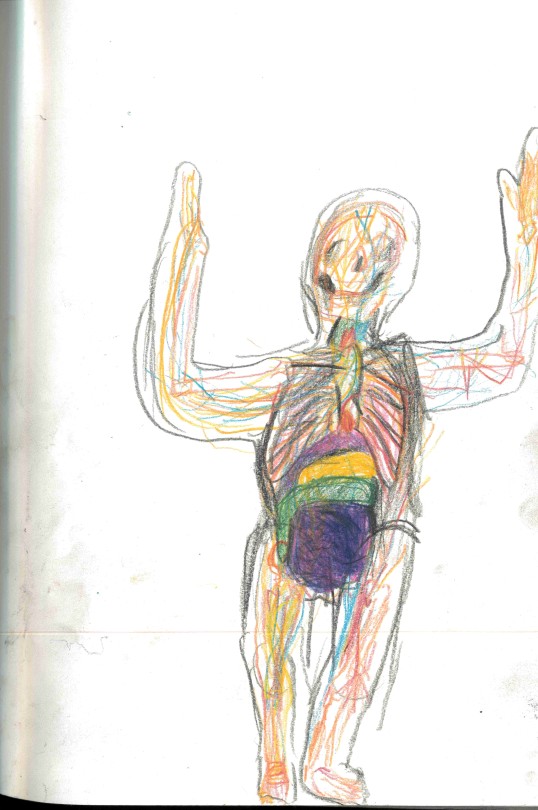


0 notes
Text
me: sitting without moving my legs for too long makes my toes turn purple then blue
my pcp:

#daily stuff#adventures in autoimmune disorders#sorry just remembered this interaction and cracked up#YES i know its raynauds i have compression socks i wear to sleep
3 notes
·
View notes
Text
Many Mental-Health Conditions Have Bodily Triggers! Psychiatrists Are At Long Last Starting To Connect The Dots
— April 24th, 2024
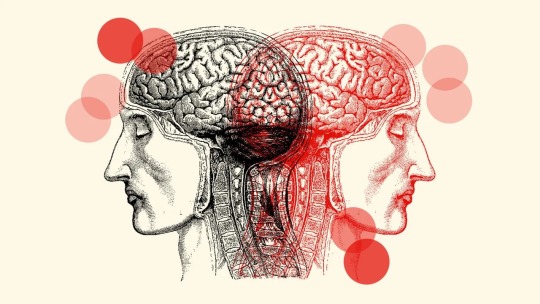
Illustration: The Economist/Getty Images
The tics started when Jessica Huitson was only 12 years old. Over time her condition worsened until she was having whole-body fits and being rushed to hospital. But her local hospital, in Durham, England, was dismissive, suggesting she had anxiety, a mental-health condition, and that she was probably spending too much time watching videos on TikTok. Her mother describes the experience as “belittling”. In fact, Jessica had an autoimmune condition brought on by a bacterial infection with Streptococcus. The condition is known as Paediatric Autoimmune-Neuropsychiatric Disorders Associated with Streptococcus (pandas). When the infection was identified and treated, her symptoms finally began to improve.
Ms Huitson is not alone in having a dysfunction in the brain mistaken for one in the mind. Evidence is accumulating that an array of infections can, in some cases, trigger conditions such as obsessive-compulsive disorder, tics, anxiety, depression and even psychosis. And infections are one small piece of the puzzle. It is increasingly clear that inflammatory disorders and metabolic conditions can also have sizeable effects on mental health, though psychiatrists rarely look for them. All this is symptomatic of large problems in psychiatry.
A revised understanding could have profound consequences for the millions of people with mental-health conditions that are currently poorly treated. For example, over 90% of patients with bipolar disorder will have recurrent illness during their lives; and in children with obsessive-compulsive disorder (ocd) over 46% do not achieve remission. Some 50-60% of patients with depression eventually respond after trying many different drugs.
For some in the profession, a deeper understanding of the biology of mental health, tied to clear biological fingerprints of the kind that might come from a laboratory test, will lead to more accurate diagnoses and better targeted treatments.
Shrinks, Rapped
The field of psychiatry has historically been focused around the description and classification of symptoms, rather than on underlying causes. The Diagnostic and Statistical Manual of Mental Disorders (dsm), sometimes known as the bible of psychiatry, emerged in 1952 and contains descriptions, symptoms and diagnostic criteria. On the one hand, it has brought helpful consistency to diagnosis. But on the other, it has grouped patients into cohorts without any sense of the underlying mechanisms behind their conditions. There is so much overlap between the symptoms of depression and anxiety, for example, that some wonder if these are actually even separate categories of illness. At the same time, depression and anxiety come in many different subtypes—panic disorder with and without agoraphobia, for example, are distinct diagnoses—not all of which may be meaningfully distinct. This can lead to patient groups in drug trials being so diverse that drugs and therapies fail simply because the cohort being studied has too little in common.
Previous attempts to find causal mechanisms for mental-health conditions have run into difficulty. In 2013 the National Institute of Mental Health, an American government agency, made a heroic gamble to move away from research based on the dsm’s symptom-based categories. Money was funnelled into basic research on disease processes of the brain, hoping to directly connect genes to behaviours. Some $20bn of new research was funded but the idea failed spectacularly—most of the genes uncovered had tiny effects. Allen Frances, a professor of psychiatry at Duke University, calls the search for such biomarkers “a fascinating intellectual adventure, but a complete clinical flop”.
Genes alone are clearly not the answer. Ludger Tebartz van Elst, a professor of psychiatry and psychotherapy at the University Hospital Freiburg, in Germany, says that many different conditions such as schizophrenia, attention deficit hyperactivity disorder (adhd), anxiety and autism can be triggered by the same genetic disorder, 22q11.2, caused by the loss of a small piece of chromosome 22.
Despite this counsel of misery, a shift in psychiatry is potentially on the horizon. Some of this is coming from a revived interest in finding neurological biomarkers with ever-more sophisticated technology. In addition, there is a greater understanding that some mental-health conditions actually have triggers or roots which need to be treated as medical conditions rather than psychiatric ones.
Fundamental Health
A key moment came in 2007, when work at the University of Pennsylvania showed that 100 patients with rapidly progressing psychiatric symptoms or cognitive impairments actually had an autoimmune disease. Their bodies were creating antibodies against key receptors in nerve cells known as nmda receptors. These lead to brain swelling and can trigger a range of symptoms including paranoia, hallucinations and aggression. The disease was dubbed “anti-nmda-receptor encephalitis”. Most important of all, in many cases it was treatable by removing the antibodies, or using immunotherapy drugs or steroids. Studies of patients having a first episode of psychosis have found that between 5% and 10% also have brain-attacking antibodies.
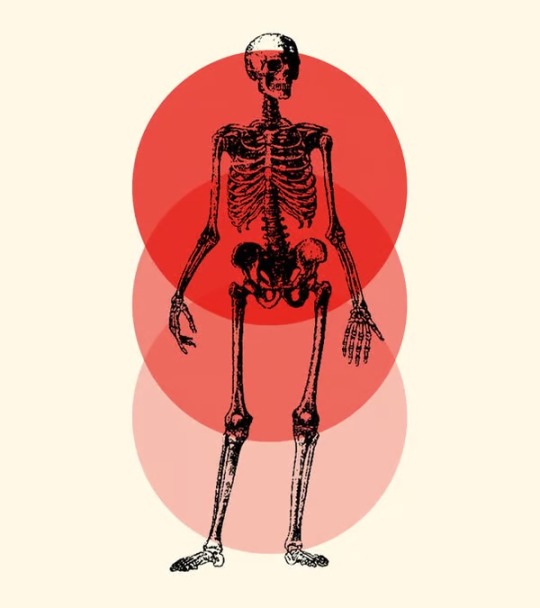
Illustration: The Economist/Getty Images
It seems likely that, in rare cases, ocd can be caused by the immune system, too. This is seen in the childhood condition pandas, with which Ms Huitson was diagnosed in 2021. But it is also sometimes found in adults. One 64-year-old man reported spending an extraordinary amount of time obsessively trimming his lawn only to look back on this behaviour the next day with feelings of regret and guilt. Researchers found these symptoms were being caused by antibodies attacking the neurons in his brain.
More recently, Belinda Lennox, head of psychiatry at the University of Oxford, has conducted tests on thousands of patients with psychosis. She has found increased rates of antibodies in the blood samples of about 6% of patients, mostly targeting the nmda receptors. She says it remains unknown how a single set of antibodies is capable of producing clinical presentations ranging from seizures to psychosis and encephalitis. Nor is it known why these antibodies are made, or if they can cross the blood-brain barrier, a membrane that controls access to the brain. She assumes, though, that they do—preferentially sticking to the hippocampus, which would explain how they affect memory and lead to delusions and hallucinations.
Dr Lennox says a shift in medical thinking is needed to appreciate the damage the immune system can do to the brain. The “million dollar question”, she says, is whether these conditions are treatable. She is now running trials to find out more. Work on patients with immune-driven psychosis suggests that a range of strategies including removing antibodies and taking immunotherapy drugs or steroids can be effective treatments.
Another important discovery is that metabolic disturbances can also affect mental health. The brain is an energy-hungry organ, and metabolic alterations related to energy pathways have been implicated in a diverse range of conditions, including schizophrenia, bipolar disorder, psychosis, eating disorders and major depressive disorder. At Stanford University there is a metabolic psychiatry clinic where patients are treated with diet and lifestyle changes, along with medication. One active area of research at the clinic is the potential benefits of the ketogenic diet, in which carbohydrate intake is limited. This diet forces the body to burn fat for energy, thereby creating chemicals known as ketones which can act as a fuel source for the brain when glucose is in limited supply.
Kirk Nylen, head of neuroscience for Baszucki Group, an American charity that funds brain research, says 13 trials are under way worldwide looking at the effects of metabolic therapies on serious mental illness. Preliminary results have shown a “large group of people responding in an incredibly meaningful way. These are people that have failed drugs, talk therapy, trans-cranial stimulation and maybe electroconvulsive-shock therapy.” He says that he keeps meeting psychiatrists who have come to the metabolic field because of patients whose low-carb diets were followed by huge improvements in mood. Results from randomised controlled trials are expected in the next year or so.
It is not only understanding of the immune and metabolic systems that is improving. Vast quantities of data are now being parsed with unprecedented speed, sometimes with the help of artificial intelligence (ai), to uncover connections previously hidden in plain sight.
Dr Jung, Tear Down This Wall
This could at long last bring biology more centrally into the diagnosis of mental health, potentially leading to more individualised treatments, as well as better ones. In early October 2023, uk Biobank, a biomedical database, published data revealing that people with depressive episodes had significantly higher levels of inflammatory proteins, such as cytokines, in the blood. A study last year also found about a quarter of depressed patients had evidence of low-grade inflammation. This could be useful to know as other work suggests patients with inflammation respond poorly to antidepressants.
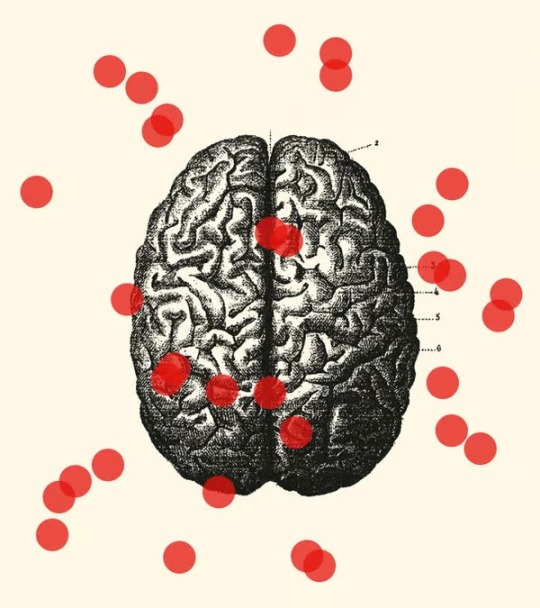
Illustration: The Economist/Getty Images
More innovation is under way. A number of researchers are exploring different ways of improving the diagnosis of adhd, for example, classifying patients into a number of different subgroups, some of which may have been previously unknown. In three separate announcements in February 2024, different groups announced the discovery of biomarkers that could predict the risks of dementia, autism and psychosis. The search for better diagnostic tools is also likely to be accelerated by the use of ai. One firm, Cognoa, is already using ai to diagnose autism in children by analysing footage of their behaviour—side-stepping the long waits for clinicians. Another outfit, the Quantitative Biosciences Institute (qbi) in California, has used ai to create an entirely new map of the protein-protein interactions (and the molecular networks) involved in autism. This will greatly facilitate further explorations of diagnostic tools and treatments.
All such developments are promising. But many of the field’s problems could be resolved by relaxing the distinctions that exist today between neurology, which studies and treats physical, structural and functional disorders of the brain, and psychiatry, which deals with mental, emotional and behavioural disorders. Dr Lennox finds it extraordinary that the treatment options differ so completely if a patient ends up on a neurology ward or a psychiatric ward. She wants antibody testing to be more routine in Britain when someone presents with a sudden post-viral mental illness that does not get better with standard treatments. Thomas Pollak, a senior clinical lecturer and consultant neuropsychiatrist at King’s College London, says mri scans should probably be used on patients after their first episode of psychosis as, in 5% to 6% of patients, it would change the way they are treated.
This rift between neurology and psychiatry is greater in Anglo-Saxon countries, says Dr Tebartz van Elst. (These are countries including America, Britain, Canada, and New Zealand.) In Germany, psychiatry and neurology are more integrated, with neurologists training in psychiatry, and psychiatrists doing a year of neurology as part of their training. That makes it easier for investigational work to be done. He says he offers most patients with first-time psychosis or other severe psychiatric syndromes an mri of the brain, an electroencephalogram, lab tests for inflammation, and a lumbar puncture to find evidence to support different treatments in some patients. The price tag, around €1,000 ($1,070), is no more than the cost of hospitalising a patient for three or four days, says Dr Tebartz van Elst, so may be good value for money.
What’s The Diagnosis?
All this work will one day put psychiatry, and its patients, on a firmer footing. It is already offering validation for some of those for whom the field has failed.
Jessica Huitson is only one of them. Diagnosed and treated too late, she still struggles with her condition and her future is uncertain. Those with me/cfs, a post-infectious condition which comes with a series of cognitive problems such as attention and concentration deficits, were once dismissed as malingering or diagnosed with “yuppie flu”. New work suggests it is associated with both immune and metabolic dysfunction.
Some wonder whether these conditions are the tip of a much larger iceberg. The prize in finding out more will be better patient care and outcomes. Biology is coming, whether psychiatry is ready or not.■
— This Article Appeared in the Science & Technology Section of the Print Edition Under the Headline "Psychiatry’s Blind Spots"
#Science and Technology | Brain Vs Body#Psychiatry’s Blind Spots#The Economist#Mental-Health | Conditions#Bodily Triggers#Psychiatrists#Connecting | Dots#Shrinks | Rapped#Fundamental Health#Diagnosis
0 notes
Text
I am SO genuinely excited to be playing dnd with people for the first time in time in like a year and a half!! Heres my little guy! His name is Tethren Nailo, a noble sorcerer whose magic causes physical damage to him. (Aka its really an autoimmune disorder that just flares when magic is used). Hes out adventuring to master control of his powers and prove himself a worthy heir to his family’s house. He also is a feared master of law and uses his skills to fight for the minorities and outcasts of society, who he feels more close to than others in his social class.
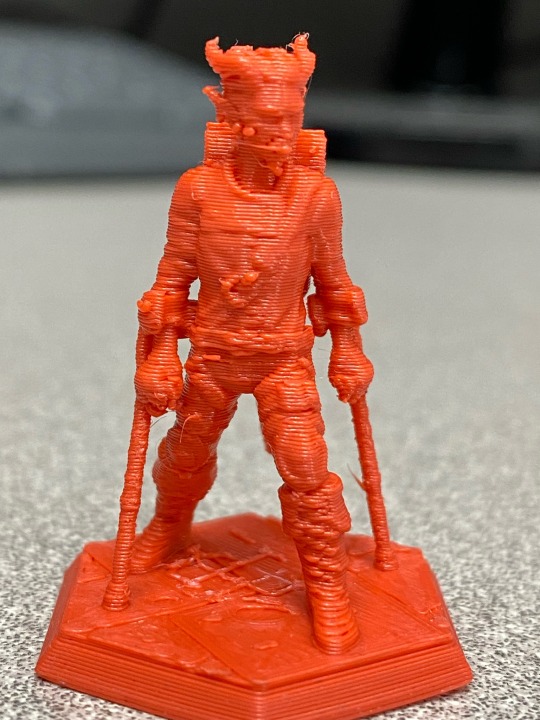
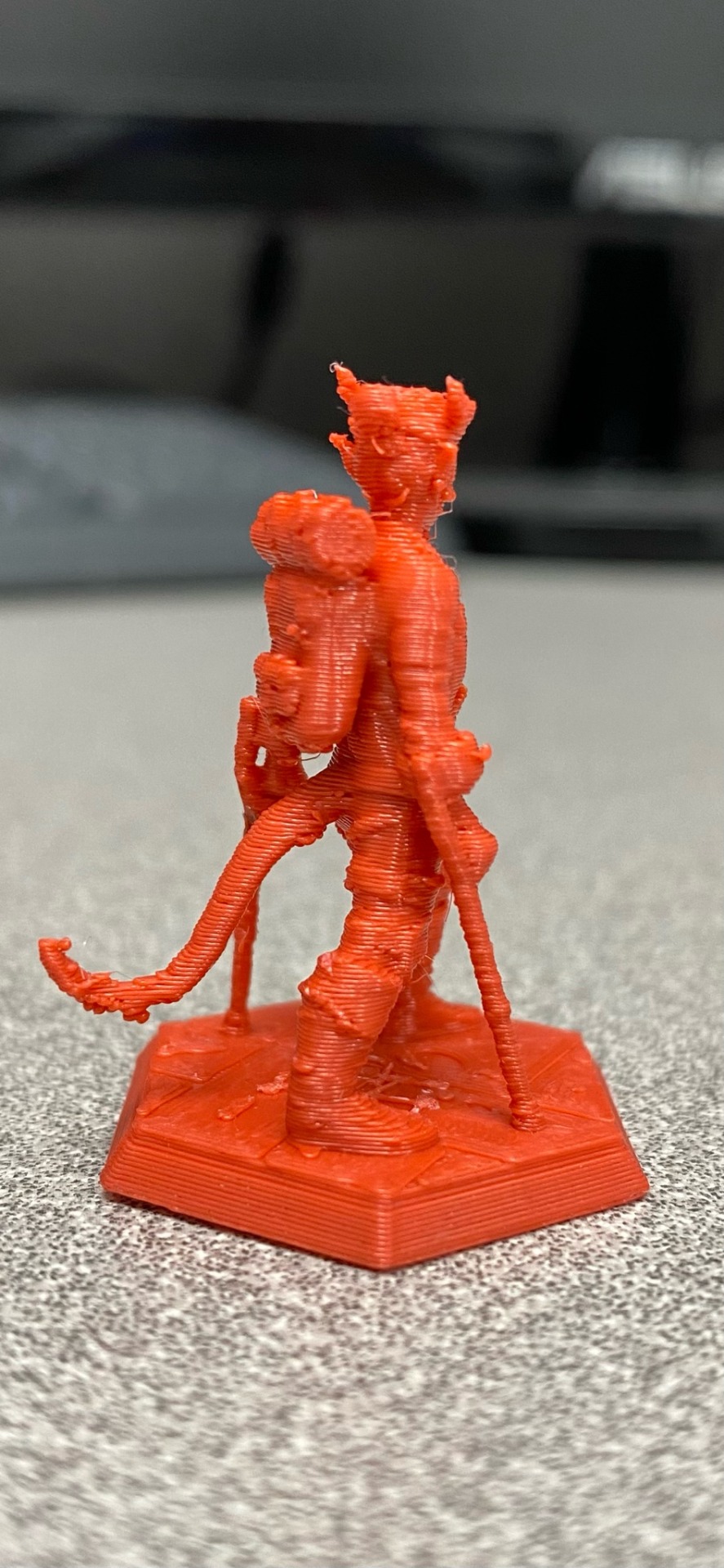


#screaming.to.the.gods#dnd#also known as I made mysef as a tiefling and swapped out one disorder for another. and also science is NOT really his thing
0 notes
Text
Sometimes I genuinely feel like I’ve failed to have the “college experience” because I have a relatively small circle of friends on campus and my autoimmune disorder prevents me from partaking in strenuous late night adventures but then I realize that it’s only been a semester and I have 3 more years ahead of me to make memories. There’s just way too much pressure to be having fun 24/7 in college which is simply unattainable.
0 notes
Text
Travel Health Advice for People With Chronic Medical Conditions

Embarking on a journey can be an exciting adventure, but for those managing chronic health conditions, it requires careful planning and consideration. At Intrigue Health, we understand the unique needs of individuals with chronic medical conditions, and we are here to provide comprehensive travel health advice to ensure a safe and enjoyable trip.
Understanding Chronic Health Conditions:
Before delving into travel health advice, it's crucial to understand what chronic health conditions entail. These are persistent health issues that require ongoing medical attention and management. Chronic conditions may include diabetes, hypertension, asthma, and more. If you're unsure about your health status, consult our travel clinic in Dartford for a thorough assessment.
Tailored Travel Health Advice:
When it comes to planning a trip with a chronic health condition, one size does not fit all. Our experienced and compassionate staff at Intrigue Health can provide personalized advice based on your specific medical needs. We take into account your current health status, medications, and any potential triggers that may arise during your travels.
Common Chronic Medical Conditions:
To better understand the specific needs of travelers, it's essential to be aware of common chronic medical conditions. Diabetes, heart disease, respiratory conditions, and autoimmune disorders are among the prevalent health concerns. Knowing your condition and how to manage it while away from home is key to a successful trip.
Health Advice for Travel Abroad:
Traveling abroad introduces additional factors to consider. Language barriers, unfamiliar healthcare systems, and different climates can impact your health. It's crucial to plan ahead. Our travel clinic in Kent can offer guidance on necessary vaccinations, access to local healthcare facilities, and tips for managing your condition in diverse environments.
Preparing for the Journey:
1. Medication Management: Ensure an ample supply of your medications, and pack them in your carry-on luggage to avoid any disruptions.
2. Medical Documentation: Carry a detailed list of your medications, dosage instructions, and a summary of your medical history. This information can be invaluable in case of emergencies.
3. Travel Insurance: Invest in comprehensive travel insurance that covers pre-existing conditions. This safeguards you against unexpected medical expenses during your trip.
4. Climate Considerations: If your destination has a different climate, consult with our pharmacists for advice on how it may affect your health and any adjustments needed in your treatment plan.
At Intrigue Health, we are committed to ensuring that individuals with chronic medical conditions can explore the world confidently. Our travel health advice is tailored to your unique needs, providing peace of mind for your journey. If you're in Medway, Bexley, or Kent, visit our pharmacy for personalized consultations and guidance.
Prepare for your travels with the right information and support. Contact us today at 033 3366 0303 or visit our travel clinic in Medway for a comprehensive consultation. Your health and well-being are our top priorities. Bon voyage!
0 notes
Text
Fertility Preservation for Women with Autoimmune Disorders
Keeping Your Baby Dreams Alive: Fertility Preservation for Moms with Autoimmune Disorders at the Best IVF Center in Indore
Hey there, future moms! Today, we’re going to talk about something really important — how to make sure your dream of becoming a mom stays alive, even if you have something called an “autoimmune disorder.” We’ll explain everything in simple words, and we’ll show you how the best IVF center in Indore can help you on this amazing journey!

What’s an Autoimmune Disorder? First things first, let’s talk about what an autoimmune disorder is. It’s like having a superhero in your body, but sometimes, that superhero gets a little mixed up. Instead of protecting you, it might start causing problems by attacking your own body. But don’t worry, we have ways to help!
The Best IVF Center in Indore Before we dive into fertility preservation, you should know that the best place for your baby-making adventure is right here in Indore — the best IVF center in Indore. It’s like a magical castle where dreams of having a baby come true. We have amazing doctors and a friendly team ready to help you.
Why Autoimmune Disorders Matter? Autoimmune disorders can sometimes make it a bit tricky to have a baby. It’s like having a puzzle with missing pieces. But guess what? Even with these challenges, you can still become a mom with a little extra help. And that’s where the best IVF center in Indore comes in!
Fertility Preservation Fertility preservation is like a secret plan to keep your baby-making powers safe for the future. It’s like putting your baby-making superpower in a special vault until you’re ready to use it.
How Fertility Preservation Works We’re going to keep it simple because that’s the best way to understand. There are a few ways to save your baby-making powers:
Egg Freezing: For future mommies, we can freeze your tiny eggs. It’s like putting them in a freezer until you’re ready to make a baby. When you’re ready, we can use these eggs to make a baby for you.
Embryo Freezing: This one is for both mommies and daddies. We mix the eggs and sperm, like a baby-making recipe, and turn them into embryos. Then, we freeze those embryos. When you’re ready to have a baby, we put one of those embryos in mommy’s tummy to grow into a baby.
Sperm Freezing: For daddies, we can freeze your tiny swimmers. It’s like putting them in a deep freeze until you’re ready to use them. When you want to be a dad, we can use these swimmers to make a baby.
When Should You Think About It? You might be wondering, “When’s the best time to think about this?” Well, the earlier, the better, but it’s never too late to start thinking about it. Whether you’re planning to have a baby soon or maybe way down the road, our best IVF center in Indore can help you decide.
The Best IVF Center in Indore: Your Fertility Partner We’re more than just a place to save your baby-making powers. At the best IVF center in Indore, we’re like your fertility buddies. We’ll answer all your questions, help you make the best decisions, and support you on your journey to becoming a mom.
Success Stories at the Best IVF Center in Indore At the best IVF center in Indore, we’ve helped lots of moms save their baby-making powers and later become super-moms. We celebrate with them when they have their cute little babies.
The Money Part: How Much Does It Cost? You might be wondering about the money part. Saving your baby-making powers doesn’t have to be super expensive. Our best IVF center in Indore has affordable options to make it work for you.
Remember, Every Mom’s Journey Is Unique Every mom’s journey is special and different. But don’t worry, our best IVF center in Indore is here to help you have the best chance to become a mom, even if you have an autoimmune disorder.
Making Your Baby Dreams Come True When you choose fertility preservation at the best IVF center in Indore, you’re giving yourself a great chance to become a mom. And when that little baby finally arrives, it’s like winning the best prize ever!
Final Thoughts So, there you have it, young adventurers! Autoimmune disorders can’t stop you from becoming a mom. With the help of fertility preservation at the best IVF center in Indore, you can keep your baby-making powers safe for the future.
Your journey to motherhood might be different from others, but that’s what makes it special. Our best IVF center in Indore is here to support you every step of the way. If you have any questions or want to start your incredible baby adventure, just reach out to us. We can’t wait to help you on your amazing path to becoming parents!
0 notes
Note
oh this is definetely what I was looking for! I had allergic reactions to pistachios and hazelnut, my gp looked in my throat and literally saw hives. But I had no reaction to the skin test so the allergist was telling me it was my acid reflux. my physcial reaction to these literally felt more... tingly? spicy? than my acid reflux and I swore I knew the difference
the allergist was... she did her job. she wanted to just do the skin test and when those came back negative she seemed like she wanted to be done with me. I had to prod her with questions to get any kind of results beyond "youre not allergic"
I have had slightly elevated tryptase levels before. and found that both zyrtec and pepcid have helped a lot with random abdominal pains and seasonal allergies. I'm currently waiting to see an immunologist but my gp is very open to the idea of histamine intolerance
thank you so much!
hey idk if you would be able to answer this but thought I would put it out there. so I have eds and THOUGHT i was having allergic reactions but a skin test at an allergist said i have literally 0 true allergies. is histamine intolerance similar to moderate allergic reactions? Ive been through most of your health tags and done research but cant really find any forward answers. its all MAY or MAY NOT
Unfortunately, you’re not finding any straightforward answers because allergies and non-IgE-mediated allergic reactions are poorly understood, even by some allergists. (usually the gaslighty kind 🙃)
It is entirely possible to test negative for allergic reactions for things you are absolutely having allergic reactions to.
This is because allergy tests focus ONLY on “true” IgE allergies and do not take into account that there are other underlying mechanisms that can cause mast cells to degranulate, which is what happens when you have an allergic reaction.
In an IgE reaction, the cells become unstable, releasing various hormones/chemical responses, which is what we know as annoying allergic reactions in minor cases, and anaphylaxis is severe responses.
In a functional immune system, these chemicals should really only be released in response to a true IgE allergy.
When your immune system is a little over-reactive, they can release in response to stress (this is what causes stress hives, and we now think some cases of IBS) and sometimes things like viral illnesses. This is why so many people have developed MCAS or MCAS-like symptoms after having covid. (mask up, besties)
Sometimes, however, the “off” switch in the immune system gets broken, and the mast cells become increasingly over-reactive, and that's when you can start developing new or seemingly random allergies that are inconsistent and don't show up on IgE allergen test panels. It’s why you’ll sometimes see the term “idiopathic anaphylaxis” in people who have anaphylaxis that can’t be explained. Well, the explanation is wonky mast cells. Why are they wonky? We’re not really sure.
Perhaps if the medical world hadn’t ignored its existence for ten+ years and focused so much on gaslighting patients until a mass pandemic hit, we would.
This type of mast cell degranulation, triggered by a non-IgE-mediated reaction, is common in histamine intolerance and mast cell activation syndrome, which can also be comorbid with EDS.
So are you reacting to things not showing up on an allergy test? Quite possibly, and your EDS makes it more likely.
Unfortunately, the testing for both is a crapshoot and are actually intended for mastocytosis. This is not to say you shouldn’t ask for a tryptase test (the 24-hour urine test is far more accurate than the blood test); I just mention it because it is entirely possible to have HIT/MCAS and still test negative for elevated levels of tryptase.
Until better testing methods are available, HIT and MCAS-aware doctors will now often diagnose based on patient history and response to mast cell stabilizers.
Anyway, sorry for the wall of salty text, I hope some of it is helpful to you! Best of luck with figuring everything out!
600 notes
·
View notes
Text
Mireille Siné: Pushing Boundaries - From Lupus to Long-Distance Running, Tackling the Speed Project with Unlimited Women.
Mirelle in her own words:
“My name is Mireille and I’m a certified run coach, autoimmune athlete, and podcast host based in Los Angeles, California.
I have been an athlete all my life but I found myself in distance running while in college.
As an exercise science major, I was immersed in the world of bio-mechanics, physical performance, and health.
However it was also in college where I was diagnosed with Lupus; an autoimmune disorder that left me sidelined from physical activity for 1.5 years.
Luckily after treatment, I was able to use running to gain back my health and then some!
Over the last ten years, I have experienced so much of what running can bring; determination, fun, discipline, adventure, and confidence."
Some accomplishments include:
- Completed 12 marathons (& counting)
- First Black women to run from Boston to NYC (200 miles in 11 days as part of the FALKE team)
- Completed a relay from Santa Monica to Las Vegas. (The Speed Project 2023 - with Unlimited Women)
***
This episode of the Tough Girl Podcast is proudly sponsored by INOV8, the pioneers in cutting-edge sportswear.
Learn more about INOV8 and get your 15% discount. Click Here.
***
Show notes
Who is Mireille
Living in LA, California, but originally from Cameroon, West Africa
Growing up in Cameroon before moving over to America at 6 years old
Wanting to finish school and to go on to college
Being inspired by her dad who was active and loved to ride bikes
Playing basketball, and enjoying being active
Having ambitious dreams and a love for learning
Wanting to have a safe profession
Being interested in science and wanting to pursue college
Studying exercise science for her undergraduate degree
Running track in high school and being curious about distance running at college
Wanting to pursue physical therapy and the challenges of trying to progress in the career
Enjoying running and feeling healthier while doing it
Dealing with stress while at college
Being diagnosed with Lupus an auto immune disease and the impact it had on her life
The impacts of Lupus on her body
Making changes and how Lupus impacted on her life
Needing to pivot and make a change in her life
Having a year left in school and needing to make some key decisions about her future
Doing what she thought was best
Needing to take a semester off from school/college
Working as a PT assistant and getting back into running
Balancing health and fitness while having Lupus
Turning to vegetarianism to help manage her Lupus
Training for her first marathon
Magical moments while running
Running in the Speed Project (2023) - running from LA to Las Vegas over a weekend
Unlimited women - a team of 10 women, bringing diversity and awareness into the running sphere
Dealing with challenges on the Speed Project
Mental tips and tricks for when it gets tough
Race strategy and how the race worked
Starting to eat meat again and dabbling in veganism
Nutrition while running and racing and making it easy.
Running from Boston to NYC and becoming the first Black woman to be involved in the project with FALKE
Working with FALKE
Running the Berlin Marathon
Entering the lottery for the London Marathon
The Los Angeles Marathon
Working as a running coach and her coaching philosophy and values
Coaching road, trail and autoimmune athletes
Education, communication, commitment and joy.
Why it’s more than just a training plan
Making the training adaptable to your life
Hosting the “Running in Public” Podcast - combining messages about running and public health.
How to connect with Mireille on social media
Final words of advice for other women who want to get into running
Speaking up and the power of advocating for yourself
The importance of making it fun!
Social Media
Website: www.coachedbymireille.com
Instagram: @heycoachmireille
Ko-Fi: ko-fi.com/coachmireille
Check out this episode!
#podcast#women#sports#health#motivation#challenges#change#adventure#active#wellness#explore#grow#support#encourage#running#swimming#triathlon#exercise#weights
0 notes
Text
Me: finally getting a job has relieved a lot of stress even though I haven't started it yet
My cat, her foot blowing up like a balloon: your $3-500 vet bill awaits, m'lord
#cats#🙃🙃🙃🙃🙃#they reckon she has an autoimmune disorder so now they have to run a bunch of tests#this is how kuch it costs BEFORE we even know exactly what she has and how to treat it!!#the adventures of waffles#the system speaks
17 notes
·
View notes